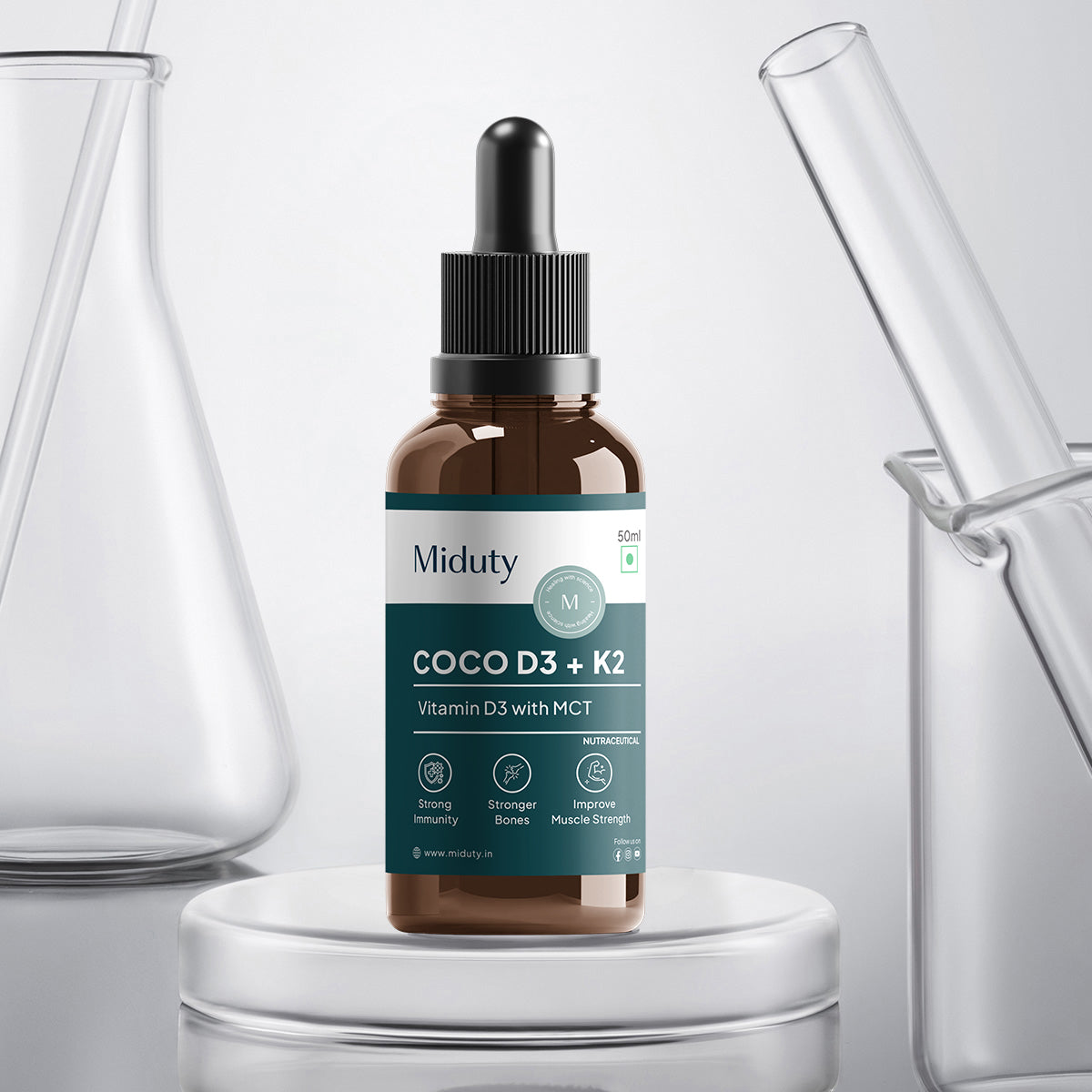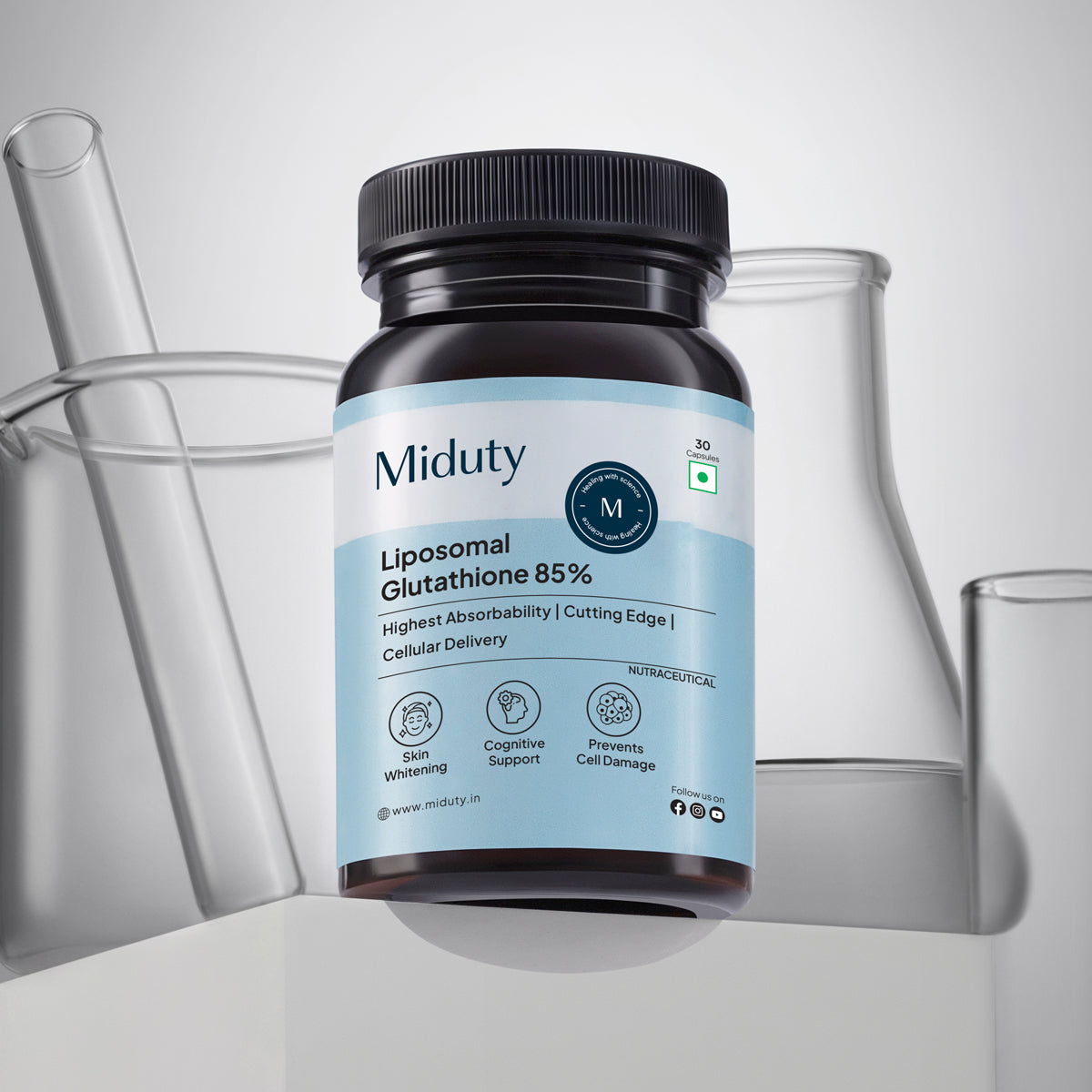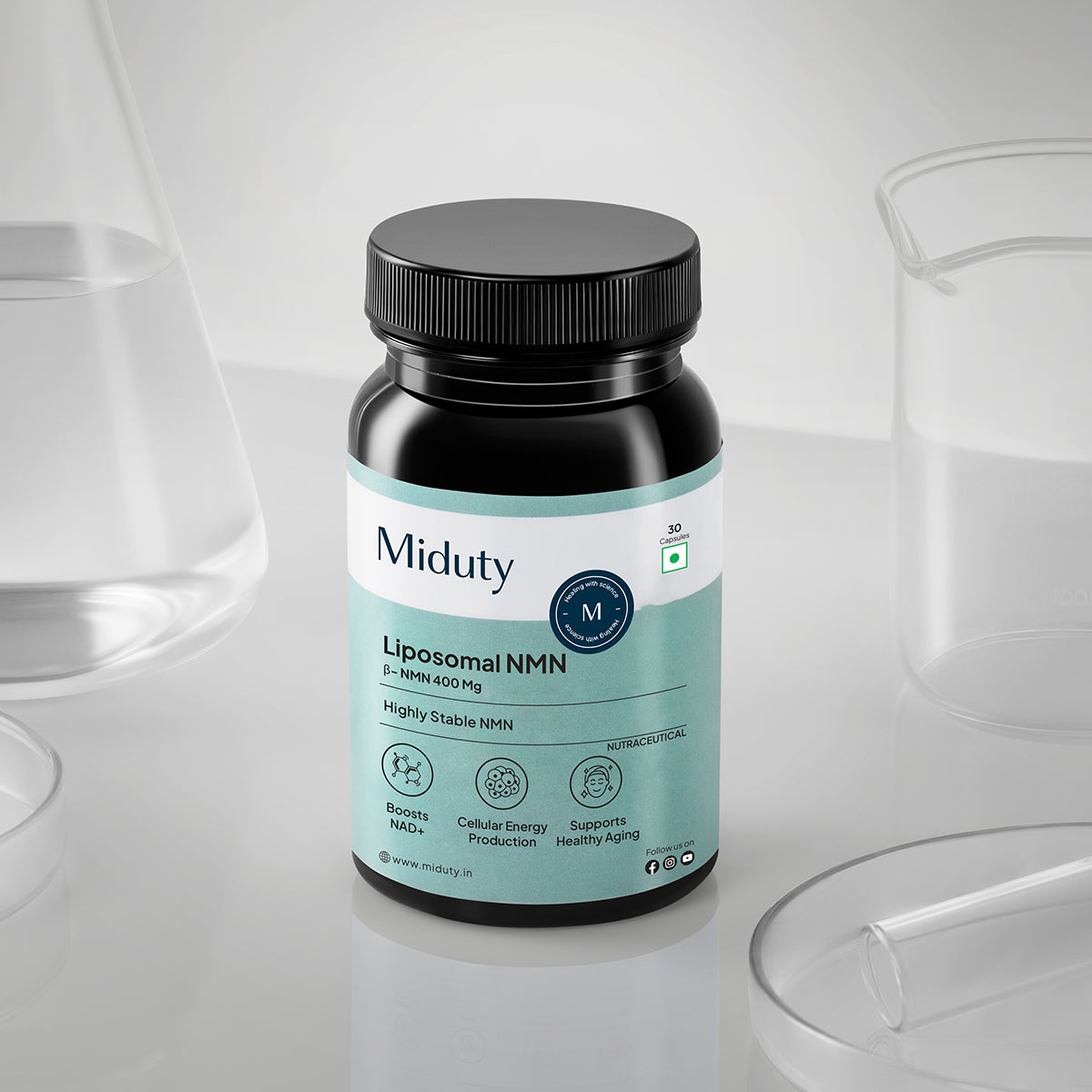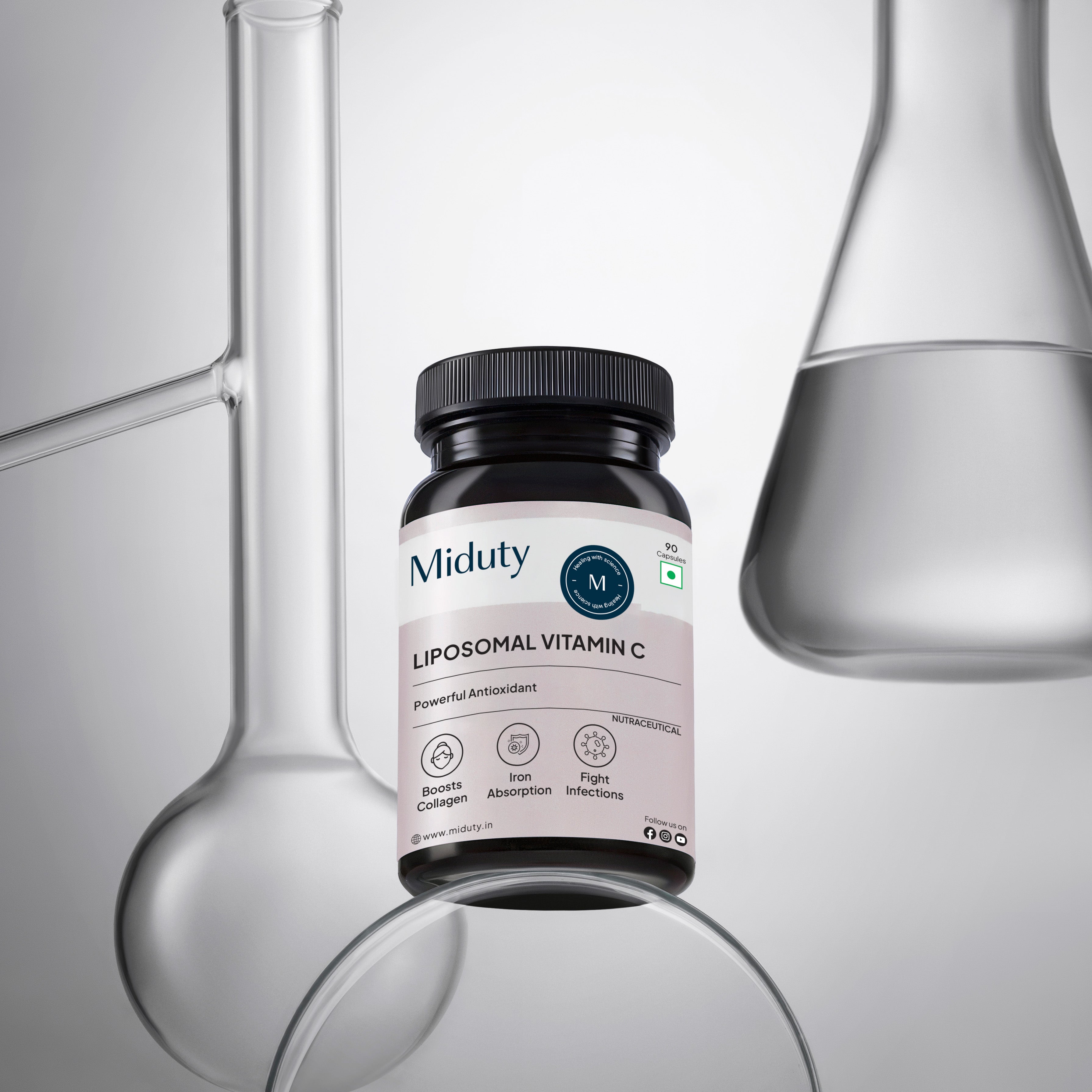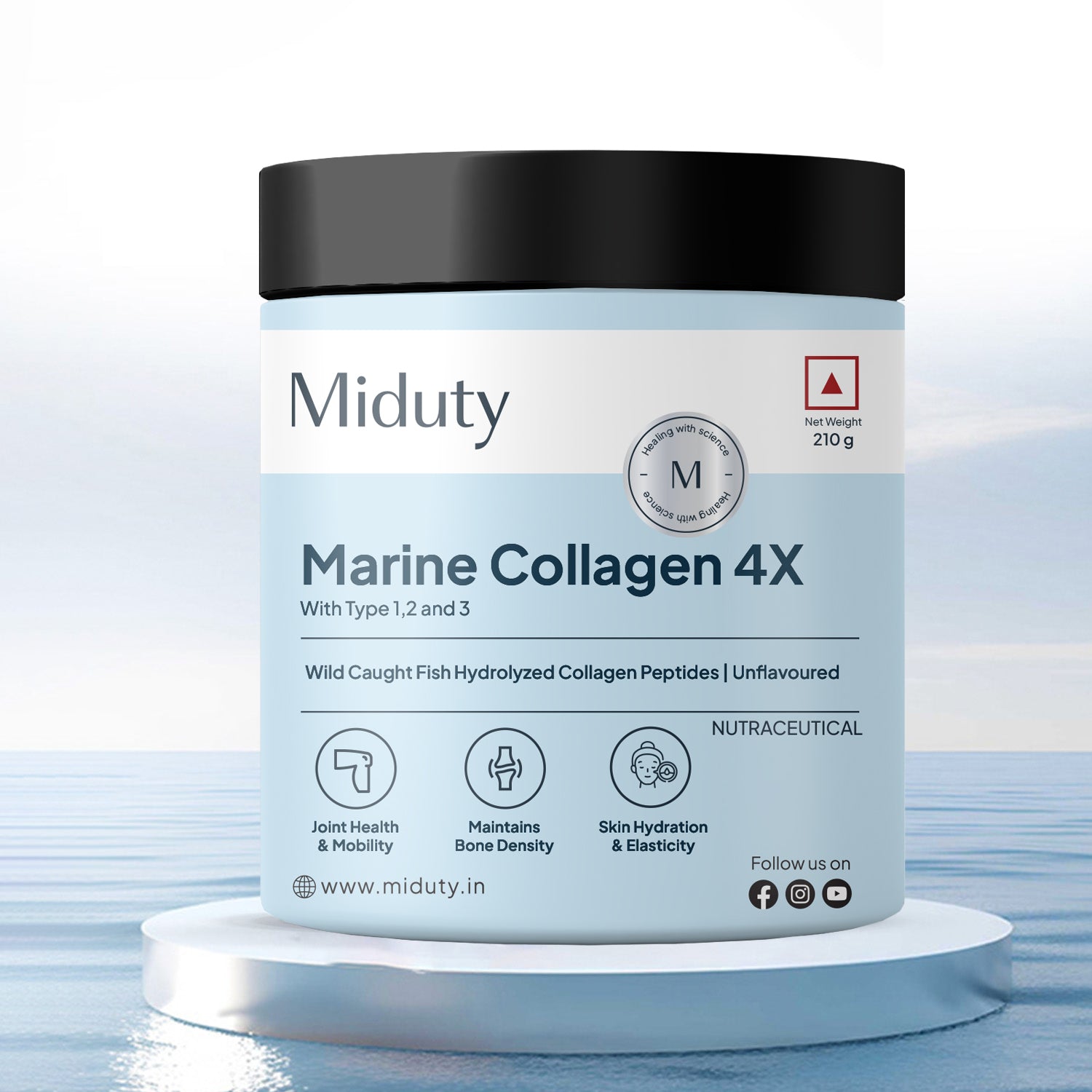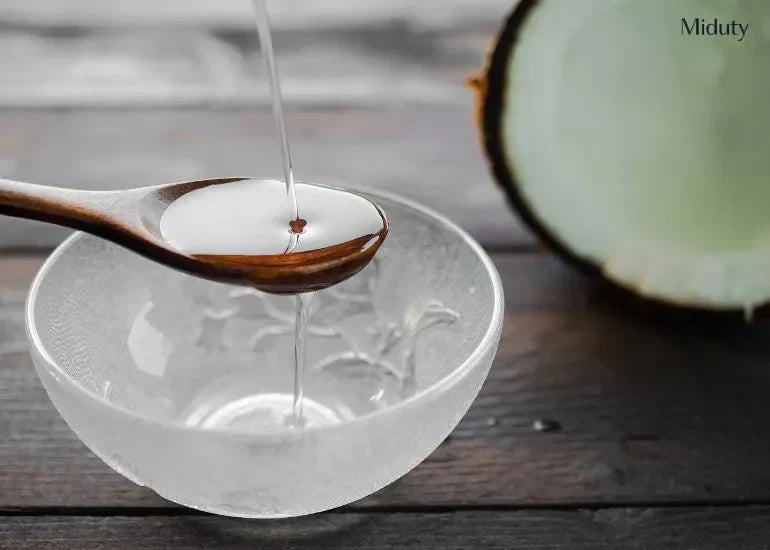
Cold Pressed Coconut Oil: Benefits, Uses, Side Effects & How to Incorporate in Daily Life
In the world of natural wellness, few ingredients have earned as much love and attention as cold pressed coconut oil. From kitchen shelves to bathroom cabinets, this versatile oil has become a true staple for health enthusiasts, beauty lovers, and even parents looking for safe, natural remedies. What makes it so special? It's not just another cooking oil — it's nutrient-rich, chemical-free, and packed with benefits for your body, mind, and skin.
Whether you're curious about its role in boosting immunity, improving digestion, enhancing brain health, or simply giving your skin and hair a natural glow, cold pressed coconut oil has something for everyone. In this blog, we'll dive into what it really is, how it's different from regular coconut oil, and the many ways you can make it part of your daily life.
Key Takeaways
1. Pure Power – Cold pressed coconut oil keeps its natural nutrients, aroma, and flavor intact.
2. Health Hero – Packed with MCTs, lauric acid, and antioxidants that boost immunity, digestion, and brain health.
3. Beauty Essential – Doubles as a skin moisturizer, hair conditioner, and natural remedy for everyday care.
4. Kitchen & Beyond – Works for cooking, oil pulling, DIY beauty, and even household hacks.
5. Use Wisely – High in saturated fat, so enjoy in moderation and always choose pure, unrefined versions.
What is Cold Pressed Coconut Oil?
Cold pressed coconut oil is often dubbed "nature's liquid gold" — and for good reason. It's extracted from fresh coconut meat (not copra) without using any heat, which is what sets it apart from other coconut oils on the market. The method preserves all the natural properties, aroma, and nutrients of the coconut, resulting in a pure, unrefined oil that's both edible and therapeutic.
This oil is rich in medium-chain fatty acids, lauric acid, vitamins E and K, and antioxidants. It's not just a cooking oil; it's a multi-purpose miracle that you can apply to your skin, hair, and even use in home remedies. Cold pressed means there's no heat or chemical processing involved — the coconut meat is mechanically pressed at temperatures below 120°F (49°C), ensuring the nutrients remain intact.
Many people confuse it with virgin coconut oil, which is also unrefined, but not always cold pressed. Cold pressing guarantees that no heat was used, maintaining a higher quality and nutritional profile. That's why it's often pricier — but also far more beneficial.
It's important to know that cold pressed coconut oil is solid at room temperature and turns liquid above 76°F (24°C). This natural transition doesn't affect its quality at all — it's just how coconut oil behaves. When buying, always check for "cold pressed" on the label, and make sure it's not hydrogenated or bleached.
In essence, cold pressed coconut oil is one of the purest forms of oil you can get from a coconut. It's a must-have in your kitchen, bathroom, and wellness cabinet.
How Is It Different from Regular Coconut Oil?
The major difference between cold pressed coconut oil and regular (refined) coconut oil lies in the extraction method, quality, and nutritional value. Regular coconut oil is typically made from dried coconut meat, also known as copra. This copra is often exposed to heat and chemicals to extract the oil, which is then refined, bleached, and deodorized (often referred to as RBD coconut oil).
In contrast, cold pressed coconut oil is made from fresh coconut meat and doesn't go through refining or high-heat processing. The absence of heat preserves the natural compounds — making it a far superior product.
Nutritional Profile of Cold Pressed Coconut Oil
Cold pressed coconut oil is rich in nutrients that play key roles in your health. Just one tablespoon (14g) packs a punch:
- Calories: ~120
- Total Fat: 14g
- Lauric Acid: ~6-7g (the highest of all plant-based oils)
- Caprylic and Capric Acids: Antifungal and antibacterial fatty acids
- Vitamin E: ~0.1mg
- Phytosterols: Plant compounds that support heart health
Unlike most oils, cold pressed coconut oil consists mainly of medium-chain triglycerides (MCTs). These MCTs are metabolized differently than long-chain fats, they go straight to the liver where they're converted into energy instead of being stored as fat.
These MCTs also make the oil easier to digest, making it a favorite for people with digestive issues or those on keto and paleo diets.
Benefits of Cold Pressed Coconut Oil
1. Boosts Immunity and Fights Infections
Cold pressed coconut oil is a powerful immune booster, thanks to its high lauric acid content, nearly 50% of its composition. When digested, lauric acid converts into monolaurin, a compound known for its antimicrobial and antiviral properties.
Key Immune Benefits:
- Fights harmful pathogens like bacteria, viruses, and fungi (e.g., Candida, staph).
- Supports healthy gut flora by targeting bad bacteria without harming good bacteria.
- Reduces inflammation, helping the body defend against chronic disease.
Usage Tip: Add 1 tsp to your morning coffee, smoothies, or curries. Safe for kids in small amounts (check with a pediatrician).
2. Aids Digestion and Gut Health
Struggling with bloating, gas, or constipation? Cold pressed coconut oil helps ease digestive issues and supports gut health.
How It Helps:
- Kills harmful microbes in the gut, reducing digestive discomfort.
- Lubricates the intestines, aiding smoother bowel movements.
- Enhances nutrient absorption, especially fat-soluble vitamins (A, D, E, K).
- Provides quick energy through MCTs that bypass traditional digestion.
Best Ways to Use:
- Take 1 tsp on an empty stomach.
- Substitute it for butter or refined oils.
- Mix with lemon and warm water for a gentle detox.
Start small to avoid digestive upset and gradually increase your intake.
3. Enhances Brain Function and Cognitive Health
Cold pressed coconut oil is brain fuel. Its high MCT content quickly converts to ketones, offering an instant energy source for brain cells.
Cognitive Benefits:
- Improves memory and focus, especially in aging adults.
- Provides alternative energy for brains with impaired glucose metabolism (e.g., Alzheimer's).
- Protects brain cells with its antioxidant properties.
How to Include It:
- Blend into morning coffee ("bulletproof" style).
- Mix with smoothies or oatmeal.
- Use in homemade energy bars.
It delivers mental clarity without the crash of caffeine or sugar.
4. Supports Weight Loss and Boosts Metabolism
Cold pressed coconut oil helps you burn fat — by eating fat. The MCTs it contains increase your metabolic rate and help regulate appetite.
Weight Management Perks:
- Boosts calorie burn through thermogenesis.
- Reduces appetite, helping you eat less naturally.
- Targets belly fat, especially when combined with exercise.
- Stabilizes blood sugar, reducing cravings and energy dips.
Pro Tips for Use:
- Take 1 tsp before meals to curb appetite.
- Use in cooking or baking as a butter substitute.
- Stay mindful — it's high in calories, so use in moderation.
Uses of Cold Pressed Coconut Oil
Cold pressed coconut oil is one of the most versatile natural products, making it a must-have in skincare, haircare, cooking, and wellness routines. Because it's extracted without heat or chemicals, it retains essential nutrients, antioxidants, and fatty acids, offering a wide range of uses.
1. For Skin:
- Works as a deep moisturizer for dry skin.
- Acts as a natural makeup remover.
- Reduces inflammation from eczema, rashes, and sunburn.
- Helps heal minor cuts, wounds, and scars.
2. For Hair:
- Strengthens roots and promotes healthy hair growth.
- Treats dandruff and scalp infections with its antifungal properties.
- Works as a natural conditioner, leaving hair smooth and shiny.
- Reduces split ends and frizz.
3. In Cooking:
- A healthier alternative to refined oils for sautéing, baking, or stir-frying.
- Provides quick energy thanks to medium-chain triglycerides (MCTs).
- Adds a subtle coconut flavor to curries, rice, and smoothies.
4. For Health & Wellness:
- Supports weight management by boosting metabolism.
- Improves digestion and promotes gut health.
- Used in oil pulling for better oral hygiene.
- Enhances brain function by providing ketones as an energy source.
5. DIY & Household:
- Ingredient for natural beauty products like scrubs and lip balms.
- Works as a wood polish, leather conditioner, and stainless steel cleaner.
With its all-in-one benefits, cold pressed coconut oil is not just an oil — it's a natural lifestyle essential.
How to Use Cold Pressed Coconut Oil in Daily Life?
Daily Consumption Guidelines
- Limit intake due to high saturated fat—some health authorities recommend saturated fats make up <10% of total daily calories.
- Use moderate amounts: e.g., 1 tablespoon per day or less, depending on overall diet.
- Pair with unsaturated fats (olive oil, avocado oil) for better lipid profile balance.
External Use: Skin, Hair, and Body Care
- Use topically on dry skin or at bedtime for moisturization.
- Use as a pre‑shampoo or leave‑in mask for hair.
- For babies (cradle cap, dry skin), ensure skin is tested for sensitivity first.
- Avoid application in acne‑prone face areas if prone to breakouts.
Cold Pressed Coconut Oil for Babies and Kids
1. Safe for Baby Massage and Skin Health
When cold pressed and free of additives, coconut oil is traditionally used for baby massage, helping moisturize delicate skin, reduce inflammation, and as relief for cradle cap. Choose high quality, organic where possible, and patch test to avoid reactions.
2. Immune‑Boosting Benefits for Children
Some evidence suggests that coconut oil's antimicrobial components help oral health, possibly reduce risk of certain infections. However, dietary benefits for kids are less well‑studied. Better to focus on overall balanced nutrition with occasional inclusion of coconut oil.
Side Effects of Cold Pressed Coconut Oil
Although cold pressed coconut oil is widely regarded as healthy, it should be used in moderation. Like any natural remedy, overuse or misuse can lead to unwanted effects.
1. May Raise Cholesterol Levels
- Coconut oil is high in saturated fat. While it boosts good cholesterol (HDL), excessive intake may also raise bad cholesterol (LDL), which could affect heart health.
- People with existing heart conditions should consult a doctor before adding it to their diet.
2. Can Cause Digestive Issues
- Taking too much at once may lead to diarrhea, stomach cramps, or bloating.
- Beginners should start with small amounts (½ to 1 teaspoon per day) and increase gradually.
3. Risk for Acne-Prone Skin
- Coconut oil is comedogenic, meaning it can clog pores and trigger breakouts in oily or acne-prone skin. Always patch test before applying to the face.
4. Allergic Reactions
- Though rare, some individuals may be allergic to coconut oil, causing itchiness, swelling, or rashes. Stop use immediately if any allergic symptoms occur.
5. Calorie-Dense
- At around 120 calories per tablespoon, consuming too much can contribute to weight gain if not balanced with an active lifestyle and proper diet.
Pro Tip: Use cold pressed coconut oil in moderation — 1 to 2 tablespoons daily for dietary purposes, and small topical amounts for skin and hair.
Who Should Avoid It?
While cold pressed coconut oil is generally safe and beneficial, it's not suitable for everyone. Here are a few scenarios where caution is advised:
1. People with coconut allergies: Though rare, coconut allergies do exist. Symptoms include itching, rashes, swelling, or even digestive distress after consuming or applying the oil.
2. Individuals with high cholesterol: Coconut oil is high in saturated fat. While some research supports its heart health benefits, others suggest it can raise LDL ("bad") cholesterol levels. If you have heart issues, consult your doctor before adding it to your diet.
3. Acne-prone or oily skin types: Coconut oil is comedogenic, meaning it can clog pores in some people. Always patch test on your skin before using it regularly.
4. Digestive sensitivity: When consumed in large amounts, it can cause diarrhea, stomach cramps, or bloating — especially for first-time users.
If you have any underlying health condition, start with a small dose (1/2 teaspoon) and observe how your body reacts before making it a regular habit.
Conclusion
Cold pressed coconut oil is more than a trendy food fad—it's a multifaceted natural product with uses in cooking, beauty, and wellness. While rich in beneficial compounds like medium‑chain fatty acids and antioxidants, it comes with caveats: high in saturated fat, with possible effects on cholesterol. Use it wisely and in moderation. In skin and hair care, it can be transformative. Choose pure, unrefined sources, store well, and integrate into your life in balanced ways. When done right, it's one of the purest choices available.
Frequently Asked Questions on Cold Pressed Coconut Oil -
Q1 - What is cold pressed coconut oil good for?
Cold-pressed coconut oil boosts immunity, aids weight management, supports oral health, and provides quick energy through MCTs. Rich in antioxidants and lauric acid, it also fights inflammation while nourishing skin and hair with deep hydration.
Q2 - What is the difference between cold pressed coconut oil and regular coconut oil?
The key difference lies in processing: cold-pressed coconut oil is unrefined and extracted without heat or chemicals, keeping its nutrients, flavor, and aroma intact, while regular coconut oil is refined with heat and chemicals, reducing its nutritional value.
Q3 - How to apply cold-pressed coconut oil?
Cold-pressed coconut oil is versatile, use it for medium-heat cooking, baking, or salad dressings. It also works as a skin moisturizer, natural makeup remover, hair conditioner, scalp massage oil, and even for oil pulling to support oral health.
Q4 - How long does cold-pressed coconut oil last?
Cold-pressed coconut oil typically lasts 12–24 months, but proper storage is key. Keep it in a cool, dark, airtight container away from heat, light, and air to prevent rancidity before its expiry.
Q5 - Can I use cold-pressed coconut oil on my face?
Yes, you can use cold-pressed coconut oil on your face, it hydrates, nourishes, and may reduce inflammation. But since it's comedogenic, it may clog pores and isn't ideal for acne-prone or oily skin.
References



